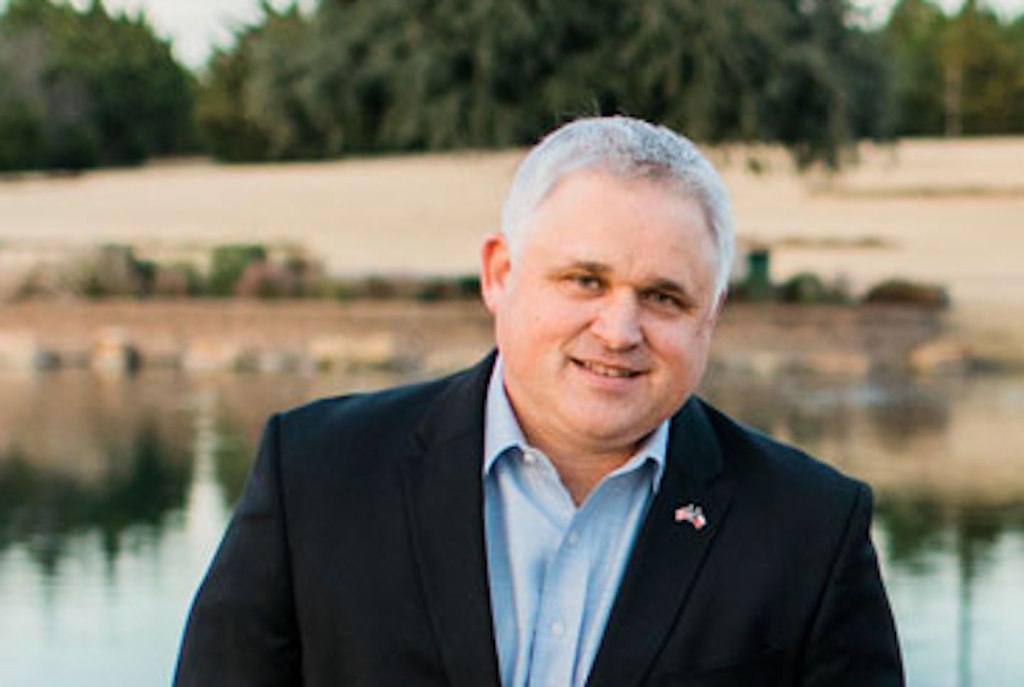Randy Boehning is a 52-year-old Republican who has been a state legislator in North Dakota since 2003. His district, like much of the state, is extremely red; unsurprisingly, he was one among the many state lawmakers who earlier this month voted down a bill that would have banned discriminating against someone because of their sexual orientation.
What makes Boehning’s stance against the bill significant is that he’s apparently “looking” on Grindr.
Videos by VICE
This came to light when a 21-year-old named Dustin Smith told a reporter from The Forum, a newspaper based out of Fargo, that he recognized the unmarried conservative from the gay cruising app. Smith says he chose to expose Boehning’s proclivities in retaliation for his anti-gay voting record.
At first, Boehning refused to acknowledge that he was “Top Man!,” the user who sent messages and a dick pic to Smith on April 12. But on Saturday he admitted to the Grand Forks Herald that he is gay, a fact which only a few people in his life had known. “The 1,000-pound gorilla has been lifted,” he said.
Boehning, who clarified to the paper he’s also attracted to women, added that he voted against the bill because that’s what his constituents wanted. “You don’t tell everyone you’re going to vote one way and then switch your vote another way—you don’t have any credibility that way,” he said.
The story raises longstanding questions about the ethics of outing closeted politicians who are perceived as hypocrites on issues of gay rights. The most prominent outer is probably journalist Michael Rogers, who in 2004 started a website called BlogActive that, among other things, hosted “The List,” which Rogers called “a listing of closeted, anti-gay politicians and high level political staff.” That summer, Rogers leaked a recording of Virginia Congressman Ed Schrock, a stalwart conservative, calling a hook-up service looking for gay sex. The blogger wrote in Politico Magazine a decade later, “Had his story gone unreported, Schrock would most likely still occupy this solidly Republican seat.”
Related: Watch our documentary on anti-gay “conversion therapy.”
In 2006, Rogers defended his controversial tactics in a debate with Fox News host Bill O’Reilly, who argued that gay rights activists should challenge opponents’ views on a political level rather than a personal level and threatened to bleep out any names he might utter on the program.
“What community is expected to harbor its enemies from within?” Rogers countered. “It’s not about private lives. They are deciding to use sexual orientation as a weapon in the elections.”
But it’s not just right-wing pundits like O’Reilly who think that outing is wrong. There are plenty of people in the gay community who would argue that it’s detrimental to “use sexual orientation as a weapon,” as a spokesperson for the Human Rights Campaign once said.
Randy Cohen, the former New York Times Magazine ethics columnist, says that some people see a politician as a mouthpiece for constituents, while others think he or she is supposed to be an ethical leader who attempts to persuade them.
Most of the people who voted for Boehning were presumably happy with his vote on the bill, but as Cohen puts it, 1850 Georgians would have wanted their representatives to vote for the Fugitive Slave Act. Politicians should lead by example.
He also says that it’s ethically sound to out a hypocritical, anti-gay politician, because the public has the right to know.
“If a representative is gay, has a direct stake in these things, and is voting against them, I think that is so odd that it becomes deeply relevant,” he says. “I would want to know that.”
Follow Allie Conti on Twitter.



